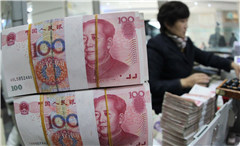Financial regulatory reform to be expanded
2018-03-03
China Daily
This year is seen as a big turning point in building China’s financial system, especially for the likely restructuring of the nation’s financial regulatory framework to more effectively fend off systemic risks.
Experts are expecting more new rules to be discussed as legislators and political advisers meet in Beijing.
Financial risk prevention will be one of the key topics for the sessions of the National People’s Congress and the Chinese People’s Political Consultative Conference. It is one of the designated “three battles” by 2020 for ensuring high-quality economic growth.
“The two sessions this year will be special for the financial sector,” said Wang Gang, a senior researcher at the Development Research Center of the State Council. It is the first year to implement the theme of the 19th CPC National Congress, which stressed financial stability, and many significant policies may follow the government leadership reshuffle, Wang said.
One new body is the Financial Stability and Development Committee, which first met in November. Its duties include coordinating monetary policy and financial regulations. It is expected to have its next meeting following the two sessions to disclose its basic organizational structure, Wang said.
Several subcommittees may be established to implement multiple responsibilities, especially to coordinate regulatory functions now separately held by watchdogs in banking, securities and insurance sectors, Wang said. That would be in line with a proposal published by Xu Zhong, head of the research bureau of the People’s Bank of China, the central bank.
Separate supervisory functions can no longer cover the inflated cross-market financing business, such as shadow banking activities that have fueled asset bubbles, according to Xu’s article. That behooves authorities to reform the regulatory structure and fix loopholes, the article said.
“Absence of supervision is a crucial reason that could lead to financial risks,” said Sun Guofeng, head of the financial research institute affiliated with People’s Bank of China. “The central bank should coordinate and supervise important financial institutions in a systemic approach, as a necessary institutional arrangement to prevent systemic financial crisis.”
A prudent and neutral monetary policy is expected to be reiterated during the two sessions to provide a favorable monetary environment for financial deleveraging and risk prevention, said Guan Tao, former director of the international payment department of the State Administration of Foreign Exchange.
Slower growth of the broad money supply, or M2, may be normal in the near future, while monetary policy is in a transition to let price-based monetary policy tools, such as interest rates, serve as an anchor, Guan said.
“In the near term, monetary policy should pay more attention to domestic inflation expectations, which could be influenced by the acceleration of the global economic recovery,” he said. Financial stability will be key as an easing monetary policy may fuel asset bubbles and market fluctuations.
Wei Jianguo, former vice-minister of commerce, said that policies to improve market-oriented reform of the renminbi’s foreign exchange rate policy may also be discussed. It is seen as a key condition to further open up the country’s financial sector.


